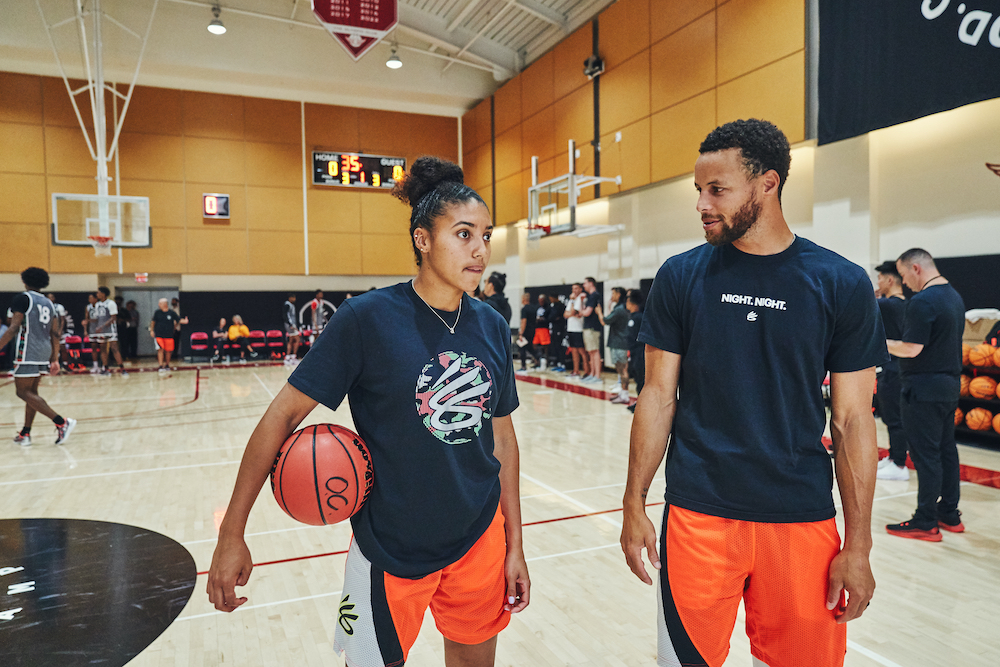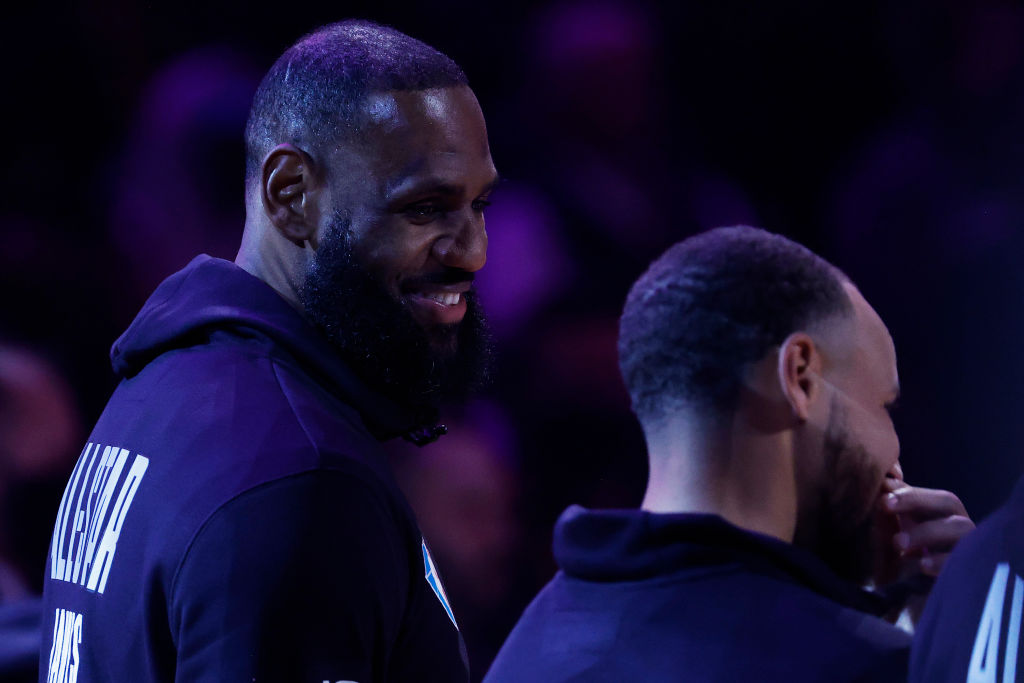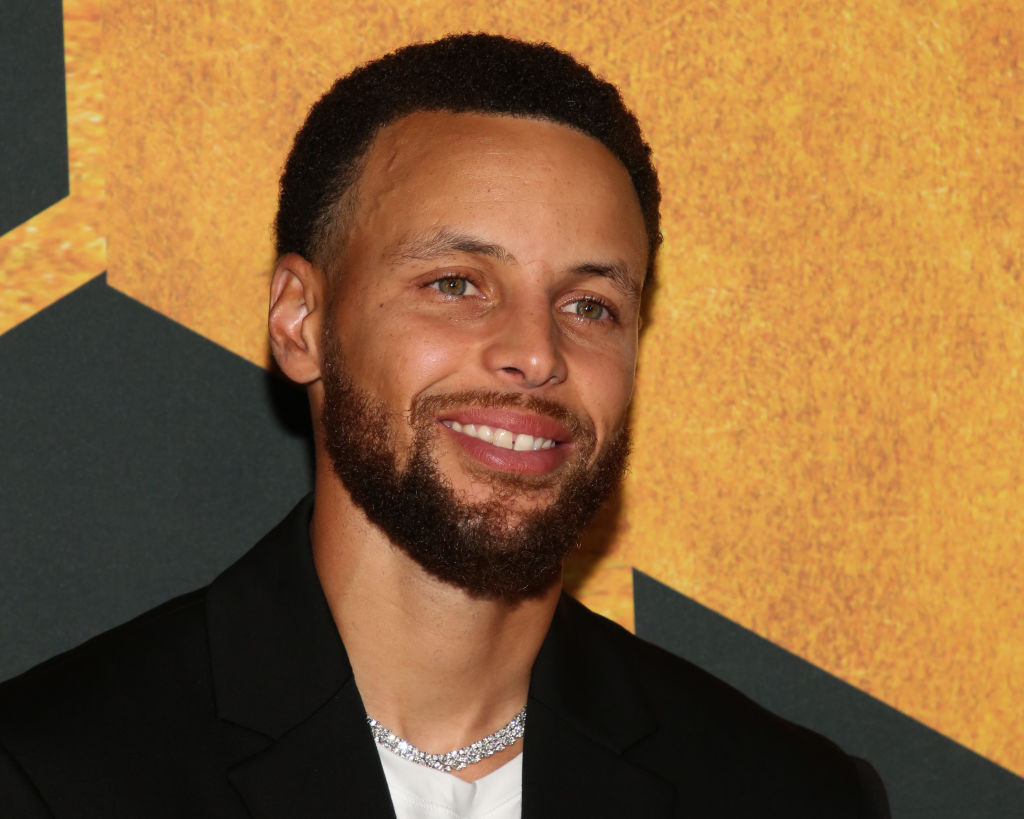Let’s face it, being a professional athlete can make you a lot of money, but it’s the moves you make off the court that will have you set for life. These days, we’re seeing more and more athletes making smarter financial decisions after watching the unfortunate mistakes made by a lot of the greats that came before them. However, while it’s great to make smart financial investments for the future of you and your family, what good is it if you don’t use your privilege to reach back and pay it forward for others who may not be in the same fortunate position that you’re in?
Steph Curry is a 4× NBA champion, 8× NBA All-Star, and was voted the league’s Most Valuable Player twice. He’s arguably one of the best basketball players of our generation — especially when it comes to draining shots from the three-point line. When he’s not leading the Golden State Warriors to the NBA Finals in hopes of clutching another championship title or being a loving husband and proud father of three, he’s securing his financial future through various investments, endorsements, and partnership deals. It’s no question that he’s worked very hard to amass his impressive $160 million net worth and he uses that wealth to give back to the community in a number of ways.
AfroTech got the opportunity to sit down with the 2022 NBA Finals MVP to go into detail about how his wealth came to be and how he’s helping the Black community gain equity, opportunity, and access to the boardroom. Especially kids aspiring to be in his shoes someday.
If you’ve seen the viral videos of Steph Curry at the recent Celebrity Golf Championship, then you know that he’s not too shabby at the sport. In fact, many aren’t aware that he’s actually created a junior golf tour for disadvantaged youth in hopes of promoting diversity and creating a pipeline for Black children into the business world.
What made you get into golf?
“I started playing when I was around ten years old. My dad got me into it. He used to play in his off-seasons. I started by just driving the cart and just being out there wanting to spend time with my dad. I didn’t really know much about the game. And then, you know, I started to hit a couple of shots and started to figure it out. Then I fell in love with it. So, now I’m a golf nerd.”
View this post on Instagram
And you're good!
“I’m pretty good, but I know that there are amazingly talented kids out there who get lost in the shuffle because it’s an expensive sport. There are so many barriers to play. From coaching equipment, travel, you know, registration fees, like everything you could think of. We wanted to support and create a pipeline for underrepresented communities in the game and give them access.
View this post on Instagram
We’re trying to provide equity, access, and opportunity through our ‘Underrated’ golf program. I started it because I understand how much the game has meant to me from not only a perspective of fun and joy but also because it’s introduced me to so many amazing people. I’ve gotten to travel and play some amazing courses. There are a lot of leaders in our world that spend a lot of time out in the golf world. There’s a lot of cohesion there. So, it’s my hope that eventually, we can not only get some Black and brown kids on the PGA tours but also in the world of business and leadership.”
You know what they say, deals are made on the golf course. And speaking of deals, from your work with NinetyToZero to joining Goldman Sachs' One Million Black Women initiative last year, it’s obvious that closing the racial wealth gap is one of your main priorities. Could you speak to why that is?
“Because I have an opportunity to demand that with things that I get interested in. Something as simple as who we get to hire or partner with, do production with, our investment deals, our media company in LA, and our writers, producers, and directors that we can create opportunities for. All that stuff matters. And I have the ability to let that be a calling card and a flag that we plant everywhere that we go.
We’re creating a consistent demand for how things should be and how any business should represent how the world looks. I’m just trying to make sure that that is a continued effort in everything that I do. My team knows it. It’s part of our direction.”

In December 2021, you became the first NBA player to endorse a college athlete when you endorsed UConn's Azzi Fudd. What’s an experience you’ve faced in your own basketball journey with endorsement deals that you wish to be shared with NIL athletes to learn from?
“It’s the classic ‘cash now, equity later’ conversation. I think that most people are aware of — but don’t necessarily know how to — maintain their leverage or manage those negotiations, or figure out which direction they should go.
LeBron had a story about him when he was coming outta high school. I think adidas offered him some crazy upfront amount of money and he turned it down for a different set with Nike that included some more equity. Then Magic Johnson, on the other hand, took some money on the front end when he could have taken equity. He’s already successful, but he could’ve been a lot more successful if he had decided to go differently.

I went through that same kind of vibe early in my career where there are so many opportunities to just do deals that look good in the here and now, but you’re leaving a lot on the table for down the road, and you’re not maximizing the leverage that you have.
Not everybody’s in that situation, but I hope to hopefully create more examples of how to do certain deals, how to approach certain conversations and give kids more options as the doors, and the floodgates have opened with these, these NIL deals.
They’re basically drinking water out of a fire hose right now in terms of having to process all this information at once while also having to make pretty monumental decisions for themselves. So I think those are always the conversations that kids can learn from.”
And I see you're wearing a "Night Night" shirt. Is it true you trademarked that?
“That’s what the streets are saying. [laughs]”
That's what we're hearing! [laughs] Smart move. That goes back to what you were saying about making those smart business decisions.
“Absolutely. Sometimes you need a smart team around you, too. Actually, I shouldn’t say sometimes — ALL THE TIME.”
















